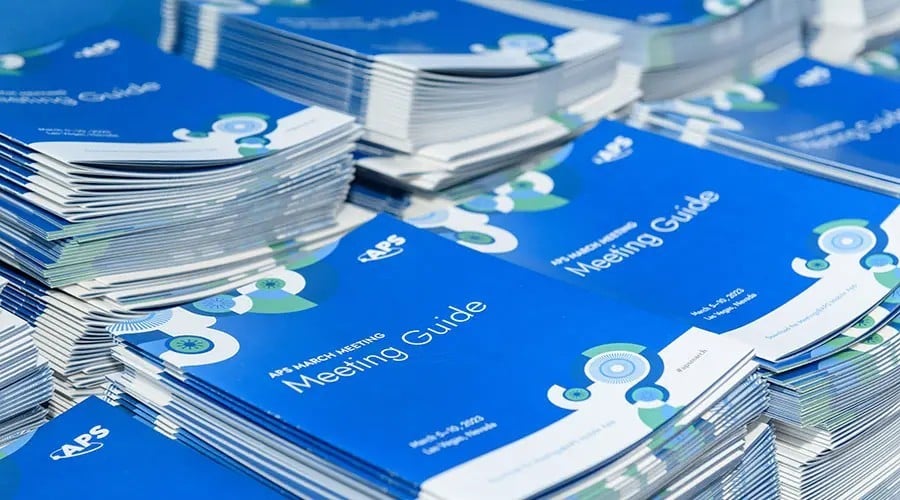Expanding Physics at the March Meeting
The annual gathering reflected physic's evolving boundaries.

The APS March Meeting 2023 was jam-packed with far more than “strictly physics,” reflecting the field’s evolving boundaries.
The meeting featured topics at the intersection of physics and other fields, like biology, data science, biomedical science, social sciences, and more — but far beyond that, there were sessions on nuclear policy and threat reduction, education, misinformation, art and physics, history and philosophy, and equity and diversity, including an APS session on bias and discrimination.
Biophysics researchers presented studies on a variety of living systems. During a session on animal behavior, scientists reported research on jumping arthropods known as springtails and wiggly nematodes; another researcher analyzed the thermodynamics of a horse’s movement. These sessions highlighted collaborations between biologists, who explained and measured animals’ behavior, and physicists, who searched for universal laws to describe it.
Robotics researchers also showcased their work, particularly in the field of soft robotics. This emerging technology creates autonomous devices out of elastic materials rather than rigid metals, making them safer to work alongside humans. To design these materials, researchers rely on basic physics research — and borrow concepts from traditional crafts. Leixin Ma of the University of California, Los Angeles presented on using the Japanese art of kirigami, which involves creating 3D structures from 2D materials like paper through folds and cuts. Another robot design came from Wenlong Li of the Agency for Science, Technology and Research in Singapore, whose team connected the lobes of a Venus flytrap to a device that electronically opened and closed them.
Presenters also discussed public communication and outreach. Alice Hanyu Zhang, a graduate student at Cornell University, talked about translating Veritasium, a science YouTube channel with 13.5 million subscribers, to China where the platform was banned. As a high school student who had just moved to the U.S. from China, Zhang was hooked on the channel’s viral videos of physics topics, like demos illustrating misconceptions about angular momentum. “When I tried to share these videos with my friends back in China, though, I hit a roadblock — the Chinese firewall,” said Zhang during her talk. Zhang worked with the channel’s host to migrate the videos onto the Chinese platform Bilibili. Zhang now manages a team to write subtitles for these videos and has gained nearly 300,000 subscribers since her efforts began around 2018.
Jevin West of the University of Washington presented his studies of the process of science itself. He talked about current challenges to scientific credibility, including the reproducibility crisis, in which researchers have been unable to replicate many papers in the biomedical and social sciences; gender inequity; and the tendency of researchers to cite papers even after a journal has retracted them.
Meanwhile, the industry exhibits illustrated the connection of physics research to emerging technology. Companies selling quantum computing-related products dominated this year’s exhibitor hall, from big names like IBM to smaller startups. For example, Colorado-based startup Maybell brought its dilution refrigerator, used to cool quantum computing chips to low temperatures. QBlox, based in the Netherlands, brought their control systems for quantum computers.
The meeting’s diverse subjects reflected the changing definition of physics. Beyond the traditional condensed matter topics at March Meeting, the techniques of the field have made their way into other disciplines and far-reaching applications.